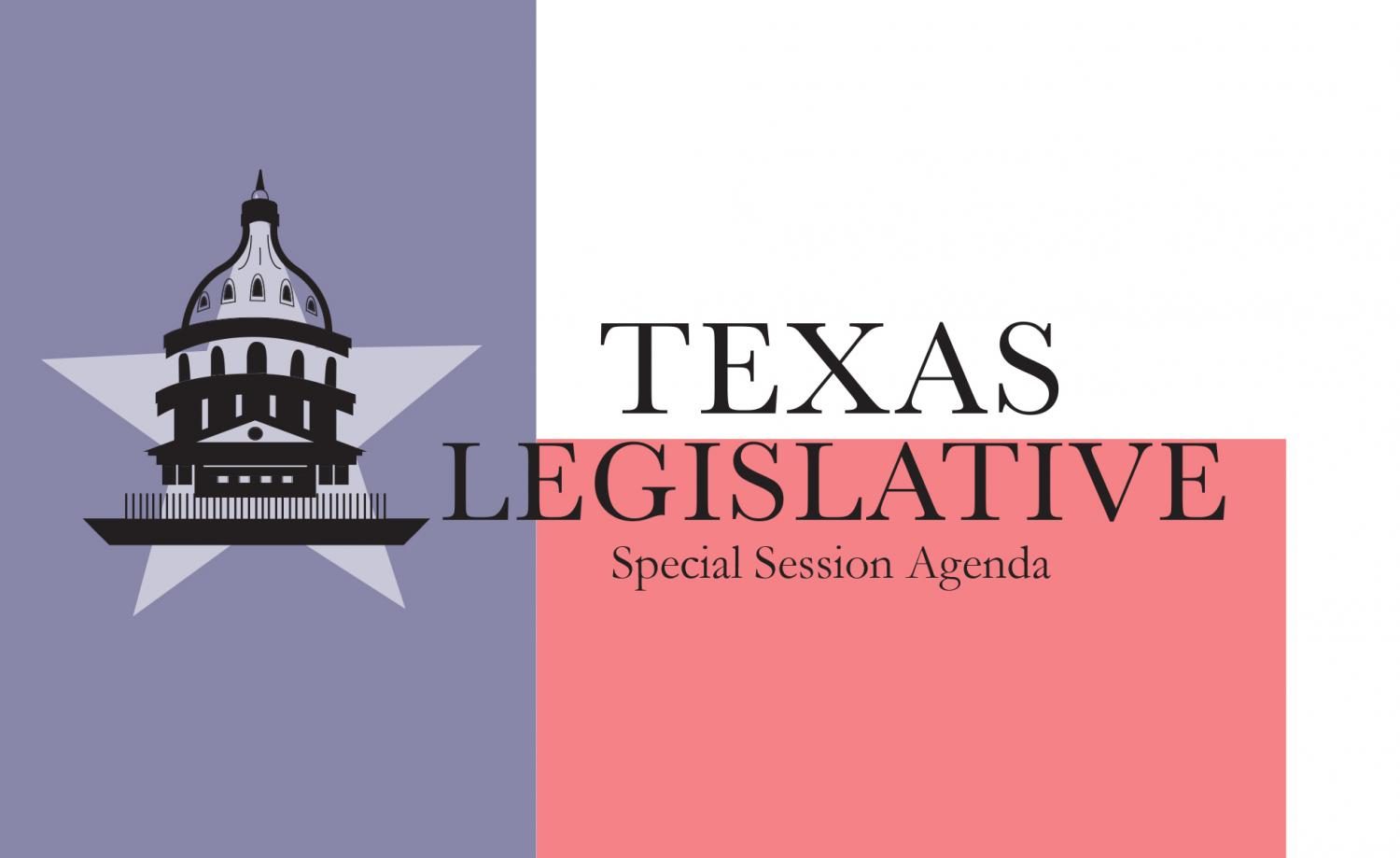This week, Texas will go into special legislative session in an effort to review and pass legislation that was not passed during the regular session.
Governor Greg Abbott has called for the session and highlighted 20 bills, some of which include more laws regulating abortion, land annexation, permits being distributed at a state level rather than local, education vouchers and the bathroom bill.
Many people, especially those outside the Republican Party, have argued that there was no need for the session and claim it was a way for Lt. Gov. Dan Patrick to push forward his bathroom bill. The House didn’t complete its sunset review process in time during the last session, which is the reason the state is going into special session.
If nothing gets resolved within the 30 days they are allowed, the governor can ask the legislature to come back again and again until all matters get resolved.
This particular session has generated controversy for its primarily conservative agenda. Many from the Democratic Party argue that the extended session is unnecessary.
State Senator Jose Rodriguez, D-El Paso, said that the session is a waste of time and is being used to revive bills with private interests that didn’t pass through the House during regular session.
“That is a waste of time. It was by pure politics. The lieutenant governor, Dan Patrick, wanted some of his priority bills passed by the House,” Rodriguez said.. “The bathroom bill, the voucher bill, a tax rollback bill, which is also in special sessions to provide tax reform because the House didn’t support those, he didn’t pass the sunset bill. The one bill that needed to pass, and that’s why we’re having to go back.”
Associate provost and political science professor, Irasema Coronado, whose area of specialization is comparative politics, also keyed in on the upcoming special session. Unlike Rodriguez, she believes it is crucial to go back into session.
“Sometimes the business of government takes longer than the 140-day biannual session. Texans are of two minds: thank goodness the legislature only meets once every two years for 140 days and too bad they only meet for 140 days,” Coronado said. “I just think that the issues are too complicated and there’s not enough time in the regular sessions. Sometimes it is important to have a special session.”
The Texas Legislative session takes place every two years and runs 140 days long. After the session wraps up, the governor can then call for a special session that can last up to 30 days. He also has the power to keep calling the legislators back after that if he believes not all of the issues were addressed.
The governor sets the agenda for what can be reviewed during the session.
Celeste Acevedo, a senior communications studies major and president of the University Democrats, sees this as unfair. She believes there are private interests when it comes to the governor’s agenda.
“Republicans have the majority in the House and the Senate. The Republicans’ priorities weren’t in the right place and I think that it’s dishonest for elected officials to push it into a special session,” Acevedo said. “Specifically prolonging this one bill (the bathroom bill), so that way other bills that weren’t prioritized during the regular session could be passed.”
Rodriguez agrees with Acevedo on the private interests of the governor and lieutenant governor with the bills that would be addressed.
“These are bills frankly that are motivated by politics for both him and the Lt. Gov. Patrick. These bills are right-winged, conservative voter-based bills that they want to impress their base of voters with,” Rodriguez said regarding the agenda that was set.
One of the key issues that many will be looking at is abortion. The state of Texas already has abortion laws in place, but three separate measures, including SB8, which relate to abortion, are set to come up in efforts to place more restrictions on the procedure. Senate Bill 8 bans partial-birth abortions and restricts fetal tissue donations.
During his recent State of the State address, Gov. Abbott told lawmakers he wanted a bill that would prohibit cities and counties from giving taxpayer dollars to abortion providers.
Oscar Sanchez, a junior electrical engineering major and president of the College Republicans, agrees with the Republican Party’s views on abortion.
“I’m for it. It’s pretty much one of the main principles of the party, being pro life. If you don’t believe in that stuff, why does your money have to go into (funding) those places,” Sanchez said.
Rodriguez is not in agreement with any of the bills relating to abortion. He said that the Democratic Party will be fighting the measures as they impose on women’s rights.
“They’re imposing more restrictions on women’s abilities to choose to have a lawful abortion, protected under the constitution, Roe v. Wade—the U.S. Supreme Court decision,” he said. “It’s almost a nonstop effort on the part of the state of Texas and other states across the country to restrict women’s rights to abortion.”
Coronado said she shares similar sentiments on the reproductive issues being addressed.
“Women’s rights have been eroding in the state of Texas for quite some time now. Everything is on the chopping block,” Coronado said. “I think women’s issues should be left up to women, not the legislature. I think it’s an erosion on women’s fundamental rights and their reproductive freedom.”
Acevedo is against abortion restrictions because of the repercussions it could have for women. The bill also places restrictions on women’s health care, such as Planned Parenthood and birth control.
“I think a bill like Senate Bill 8 directly violates the rights that women should have. I just think its awful. It’s so dangerous because abortions are going to happen, legal or not,” Acevedo said. “If women don’t have the proper access to a safe abortion, then they are either going to travel out of state or some people try to do it themselves and that’s a risk to their health.”
Along with the restrictions and regulations comes defunding of clinics that provided health services to women for free. These clinics provide different health screenings for women, cancer screenings, cervical screenings, HIV/AIDS testing, family planning and access to free birth control.
“The state in the last two sessions, 2013, 2015, cut back on the women’s health program funding. Women who used to go to a lot of these clinics can’t do it anymore because a lot of those clinics closed and they kept Planned Parenthood from being involved in operating some of these clinics,” Rodriguez said. “Allegedly because Planned Parenthood does abortions, but these clinics that we’re talking about for low-income women are clinics that provide no abortions, but provide health services.”
The bill that arguably stirred the most controversy during the regular legislative session was SB6, better known as the “bathroom bill,” and it is being revisited as one of the key items on the governor’s agenda. When first presented, it was received with a widespread denunciation from large advocacy groups.
SB6 prohibits transgender people from using public bathrooms, including schools, that match their gender identity and requires them to use facilities that corresponds to their biological gender.
This is one bill that Sanchez doesn’t necessarily agree with.
“The bathroom bill, I understand why they want it, but at the same time, why should the government interfere with that?” Sanchez said.
Coronado is already anticipating the issues that will arise from the passage of SB6.
“This is the governor’s agenda, and I know one of the issues is the bathroom bill and that’s going to be a big issue for everyone,” Coronado said.
Another bill deals with annexation and prohibits cities from annexing properties unless they give the people who live in the area being annexed the opportunity to vote.
“Annexing land, all of a sudden the city wants to make your property part of the city,” Sanchez said. “These people, you didn’t even vote for, want you to be in their cities. Your taxes will go up and you have to start following codes.”
Additionally, there are also bills that deal with local control. Rodriguez sees this as a destruction of local governments as they are getting power taken away.
“The state is trying to dictate local government, like cities and counties, how to run their business. There’s one that deals with how you can regulate trees in your community. There’s one that calls for issues on permits. I mean that’s as local as you can get,“ Rodriguez said.
The priority bill is the sunset review bill because if it fails to be approved once again, it could result in the shutdown of critical state agencies.
“If that bill doesn’t pass, that agency will go out of existence starting September 1. That’s the one bill we have to pass. Out of the other bills, there’s only two that I would call positive bills.” Rodriguez said.
Addressing 20 bills in only 30 days may seem unlikely, but the governor has the power to call another session.
“The entire country is going to be watching what the legislature will be doing. There’s a lot of politicking going on because the lieutenant governor might have other political aspirations and the governor certainly wants to be reelected, so we’ll have to wait and see how that plays out,” Coronado said.













Dania Barroso • Jul 26, 2017 at 8:20 AM
I feel often times El Paso (as its a liberal leaning city in the far corner of Texas) forgets that Texans hold conservative values in general. The majority of Texas is filled with conservatives. For media to be stating “how bad” things are, and hardly ever interviewing the conservatives in this city, is very biased to me. Articles like these are very biased because they do not mention how Republicans/Conservatives see these things. I often can’t take news articles in El Paso seriously because of it. I would hope the Prospector considers writing more objectively from now on.